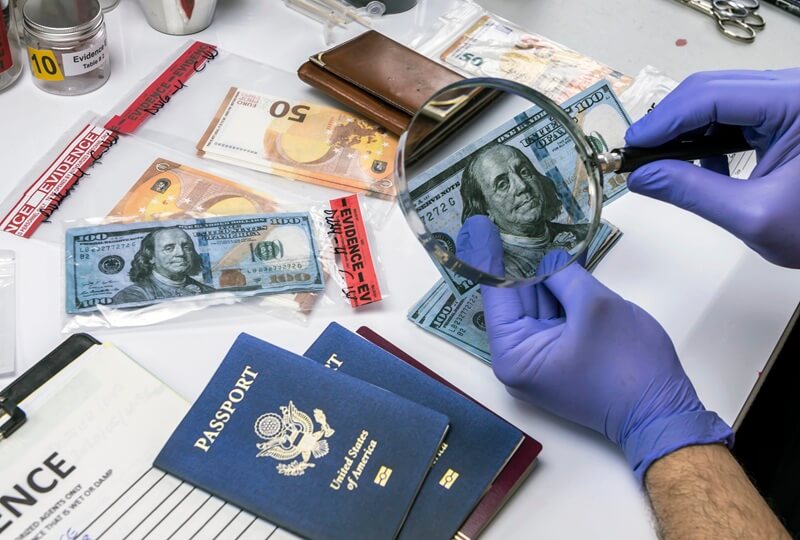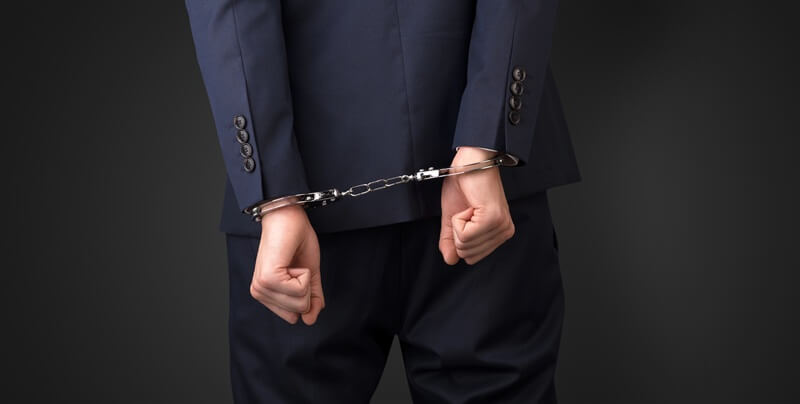Manassas Counterfeiting Lawyer For Forgery & Fraud Cases
Key Takeaways:
- Counterfeiting in Virginia includes more than just fake money; it covers forged documents, fake goods, and false IDs.
- Penalties range from misdemeanors to serious felonies, with consequences that affect your job, housing, and future.
- A Manassas counterfeiting lawyer can help you understand the charges, challenge weak evidence, and build a defense.
Counterfeiting is more than a crime; it can shake your reputation, finances, and freedom. Many people think it only applies to fake money, but Virginia law goes much further. Facing these charges alone is risky. That’s where a Manassas counterfeiting defense lawyer steps in: to guide, protect, and fight for you.
In this article, you’ll learn what counts as counterfeiting under Virginia law, the penalties you could face, and the defenses a strong attorney might use. You’ll see how legal representation can challenge the charges and help you regain control.

What Fraudulent Items Are Illegal In Virginia?
Virginia’s counterfeiting laws cover a wide range of items: anything that’s fraudulently passed off as genuine. These include:
- Fake Currency: Counterfeit banknotes, coins, or checks. Attempting to use counterfeit currency, if you knew it was fake, can trigger charges. Lack of knowledge may be a defense.
- Counterfeit Goods: Knockoff designer products, fake electronics, or illicit pharmaceuticals. Charges depend heavily on the total value and whether there was intent to deceive.
- Forged Legal Documents: Altering or creating fake wills, deeds, or contracts. Signing someone else’s name or fabricating records for profit is a serious crime.
- Fake Identification: Forged driver’s licenses, passports, or IDs. If used to commit fraud, the penalties escalate sharply.
- Possession With Intent: You don’t need to make counterfeit goods to be charged. Just having them with a plan to use or distribute them can lead to felony charges.
These categories help show how broad counterfeiting law can be. An item’s nature, value, and your intent all play major roles. A Manassas counterfeiting law firm can examine exactly where your case fits and how to fight it.
What Does The Law Say About Counterfeiting?
Virginia treats counterfeiting crimes under multiple legal theories. The type of offense, currency, forgery, or goods determines the statute applied. Still, certain principles are common: false representation, intent to defraud, and the act of deceiving or passing off something as real.
Forgery & Uttering
Forgery means creating or altering documents to mislead others. That includes signing someone else’s name or altering official paperwork. It applies to contracts, checks, deeds, and more.
Uttering is using or presenting a forged document as valid. You don’t have to have created the forgery yourself to be charged; you just need to knowingly pass it off. Under this law, presenting a fake check or an altered deed could expose you to as much as 10 years in prison and serious fines.
Counterfeit Currency
Counterfeiting money is one of the most aggressively prosecuted financial crimes in Virginia. The law makes it illegal to make, possess, or distribute counterfeit currency, as well as to knowingly attempt to pass it off as genuine.
- Making or possessing counterfeit notes is a Class 4 felony under Virginia Code § 18.2-170. A conviction can bring 2 to 10 years in prison and fines up to $100,000.
- Passing or attempting to pass counterfeit money (known as “uttering”) is charged under Virginia Code § 18.2-172 as a Class 5 felony, punishable by 1 to 10 years in prison, or up to 12 months in jail and a $2,500 fine if the court treats it as a misdemeanor.
Even if a counterfeit bill isn’t accepted or the attempt fails, you can still be charged. And if federal authorities get involved, penalties increase significantly. Under 18 U.S.C. §§ 471–477, federal convictions can mean up to 20 years in prison and heavy fines, with investigations often led by the U.S. Secret Service.
Counterfeit Trademarks & Goods
Selling or distributing counterfeit goods is unlawful under Virginia’s trademark and fraud laws. This can include imitation watches, fake handbags, copied electronics, or counterfeit medicine. Even if you didn’t manufacture the goods, distributing them or knowingly possessing many of them can lead to criminal charges.
Virginia law treats first offenses under this statute as Class 1 misdemeanors: up to 12 months in jail and $2,500 in fines. Repeat offenses or when the value is high, turn the crime into a Class 6 felony. Courts and civil owners may also pursue civil suits for damages, lost profits, and injunctions.
Fake Identification
Forging or using fake IDs is not only about underage drinkers; it’s about identity fraud. Possessing a forged driver’s license, passport, or other official ID can be charged as a crime. The severity depends on how you use the ID.
If used simply to misrepresent age, say to purchase alcohol, it may be a misdemeanor. But using it to commit fraud or other serious offenses can escalate to a Class 6 felony, carrying potential years behind bars.
When Counterfeiting Goes To A Federal Court In Virginia
In Virginia, state prosecutors may handle small-scale forgery or fake merchandise cases. But counterfeiting jumps into federal court when:
- U.S. Currency Is Involved: Printing or possessing fake bills is prosecuted under 18 U.S.C. § 471.
- Securities or Bonds: Creating counterfeit stocks, bonds, or treasury notes.
- Passports & IDs: Forging U.S. passports, immigration documents, or military IDs.
- Interstate or International Commerce: Selling counterfeit goods (luxury brands, electronics, pharmaceuticals) across state lines or online.
- Possession of Tools: Even holding printing plates or digital templates can trigger federal charges.
Because counterfeit goods and money almost always move through interstate markets, most cases land in federal court.
Federal Penalties & Punishments
The penalties for counterfeiting are harsh and escalate quickly:
- Currency Counterfeiting (18 U.S.C. § 471): Maximum of 20 years in federal prison and heavy fines.
- Counterfeit Goods (18 U.S.C. § 2320): Up to 10 years in prison and fines up to $2 million for individuals, or $5 million for corporations.
- Forgery of Government IDs (18 U.S.C. § 1028): Up to 15 years in prison.
- Asset Forfeiture: Equipment, money, and property linked to counterfeiting can be seized.
Repeat offenders or large-scale operations can face even longer sentences and stacked charges like wire fraud, conspiracy, and money laundering.
How Federal Prosecutors Build These Cases
Investigations are usually led by the U.S. Secret Service, FBI, or Homeland Security, often using undercover operations, surveillance, and forensic analysis of digital printing equipment. By the time charges are filed, prosecutors often have extensive evidence.
If you’re facing federal crimes charges in Virginia, your freedom, finances, and future are at risk. The Irving Law Firm in Manassas will fight aggressively to protect your rights, challenge government evidence, and push back against federal prosecutors.
Collateral Consequences Of Conviction
A conviction for counterfeiting doesn’t end with jail or fines. It touches nearly everything in your life. Understanding the fallout is crucial.
Limiting Employment Opportunities
A fraud-related conviction often closes doors. Many employers, especially in finance, government, or licensed professions, reject candidates with a counterfeiting or forgery record. You may be barred from entire industries.
Creating Housing Barriers
Landlords are wary of renting to those with financial crime convictions. Many rental applications and housing programs include background checks. Having a felony record can mean rejection or much higher deposits.
Damaging Financial Stability
A criminal record reduces trust with lenders and banks. Getting loans, mortgages, or credit becomes harder. Rebuilding financial health gets much tougher when fraud is on your record.
Threatening Immigration Status
If you’re not a U.S. citizen, a fraud-related felony is serious. It can be treated as a crime of moral turpitude, and that can lead to deportation or visa denial. Immigration authorities treat counterfeiting and financial fraud harshly.
The weight of a conviction lasts long after sentencing, impacting your work, reputation, and life choices. It’s not just about the sentence. Fighting the charges is about protecting your future.
Taking Back Control With A Manassas Counterfeiting Lawyer
One counterfeiting charge can make you feel like nothing is safe anymore. But there is a path forward. You deserve more than admission; you deserve a strategy, a defense, and a voice.
At The Irving Law Firm, we take every case seriously. We explore every detail, challenge every assumption, and defend your rights from the first moment. Whether from negotiation or trial, our team fights to protect your name, your assets, and your future.
No two cases are the same. Whether the case stems from a misunderstanding or a deliberate scheme, we tailor our strategy to your situation. A Manassas counterfeiting attorney from our firm will stand with you, ready to push back, push forward, or pivot as needed.
Call us today. Let us take the burden, build your defense, and help you start reclaiming your life.
FAQs About Counterfeiting Charges In Virginia
Counterfeiting laws in Virginia can be confusing, especially if this is your first run-in with the legal system. Below are some of the most common questions people ask when facing these charges. Understanding the answers can help you feel more prepared and focused on what to do next.
The law around counterfeiting is full of gray areas, but one thing is clear: early action matters. If you’re unsure what your charges mean or how to respond, the team at The Irving Law Firm can help. We’re here to answer your questions, explain your options, and fight for a path forward.
What Our Clients Say About Us
Our lawyers will represent you in family, business formation, criminal, personal injury, & estate planning matters.
They Are Top Notch
I arranged for Rachel Goldsher with this firm to handle my brother’s divorce. She and the firm’s staff were very responsive to his needs, and recommended a course of action that was reasonable and cost effective. Their billing was very reasonable, with paralegals and other staff handling much of the routine work and billing accordingly. As a result the overall cost of the divorce was reasonable. Rachel also effectively addressed my brother’s particular needs in the settlement agreement. I highly recommend.
I Highly Recommend
I arranged for Rachel Goldsher with this firm to handle my brother’s divorce. She and the firm’s staff were very responsive to his needs, and recommended a course of action that was reasonable and cost effective. Their billing was very reasonable, with paralegals and other staff handling much of the routine work and billing accordingly. As a result the overall cost of the divorce was reasonable. Rachel also effectively addressed my brother’s particular needs in the settlement agreement. I highly recommend.
I Highly Recommend Them
In a time of turmoil, the Irving Law Firm was there to answer my questions regarding a divorce. They do not try to gouge you and explain ways to make your divorce less stressful and pocket friendly. I highly recommend them.
I’d Definitely Hire Again If NeededRebecca and staff were wonderful handling my case. They seemed mindful of the billed time and I didn’t feel any was excessive. Her attention to detail brought me additional arrearages which a former attorney didn’t notice or enforce on prior filings. I’d definitely hire again if needed.
I Highly Recommend The Irving Law Firm To AnyoneMy experience with ms.Rachel Goldsher was nothing short of outstanding. She handled my case with the utmost professionalism and care. Her proactive approach was exceptional. I highly recommend THE IRVING LAW FIRM to anyone.
Excellent Results In Family & Criminal CasesExcellent results in family and criminal cases. I recommend the Irving law firm you will be satisfied. Thank you so much
Highly Recommend!!
Great support throughout the process and excellent results delivered. Highly recommend!!
We are on a mission at The Irving Law Firm to provide exceptional service and client satisfaction.


